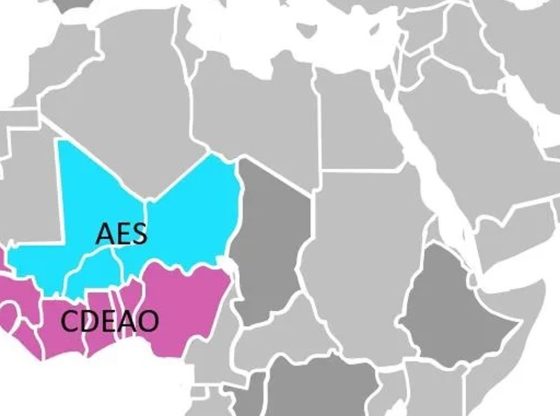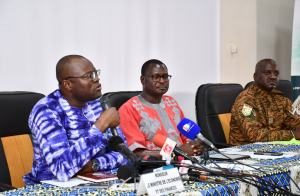AES Confederation: ECOWAS threats and sanctions do not prevent progress

Since transitioning from coups d’état to the effective establishment of the Sahel Alliance Confederation (AES), it is clear that the leaders of member countries have defied ECOWAS’s threats and sanctions.
This shift highlights the unwavering determination and bold vision of these revolutionary Sahelian leaders.
Initially, ECOWAS sanctions and threats aimed to dissuade and weaken the overthrowers of “democratically elected” regimes in order to restore constitutional order.
However, the resistance and determination of the military regimes led ECOWAS leaders to reconsider their stance.
Ultimately, the sanctions deemed illegitimate and inhumane were lifted, and transitional regimes were accepted.
In September 2023, the three Sahelian states led by military regimes—Burkina Faso, Mali, and Niger—decided to form an alliance to better tackle terrorism, a common security challenge.
This decision was followed by these countries’ withdrawal from ECOWAS in January, prompting dissatisfaction among the West African organization’s leaders and their allies.
In response, economic threats and potential complications regarding the free movement of people and goods within ECOWAS were raised.
Despite these pressures, the Sahelian countries have stayed the course, focusing on their vision of creating a common space to address shared challenges and shield themselves from external influences.
Currently, discussions are underway in Niamey to explore solutions to issues related to free movement and integration within the AES.
The Sahelian leaders remain focused on their objectives, determined to strengthen their alliance in the face of the security and economic challenges they face.
Titi KEITA












